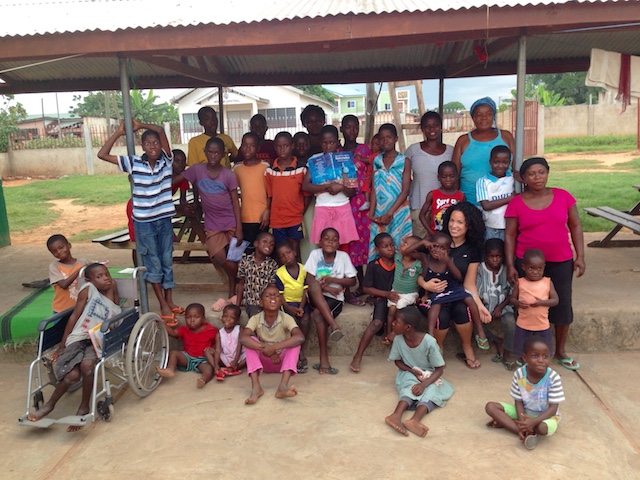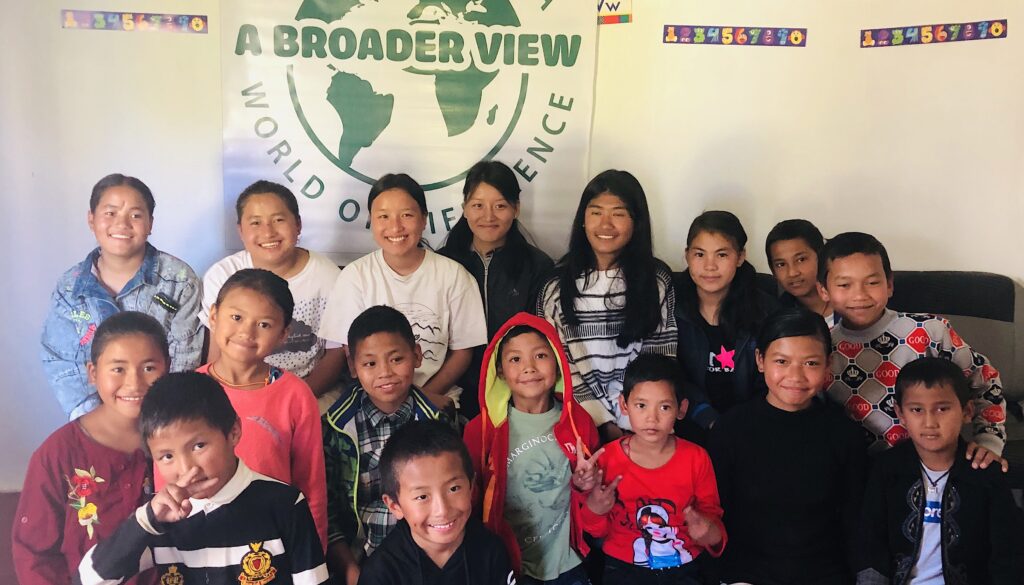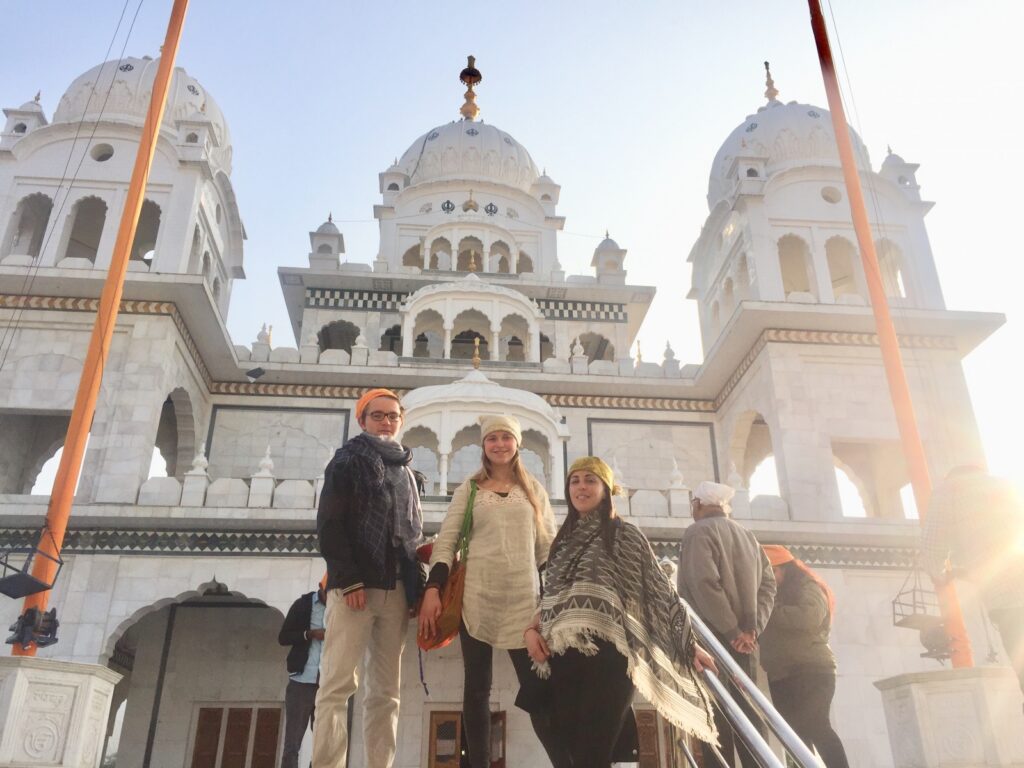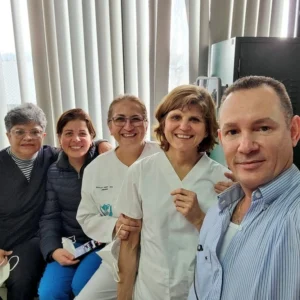Welcome to the world of international volunteering! Embarking on a journey to make a positive impact in communities around the world is both exciting and fulfilling. As you prepare for your volunteering experience, it’s essential to recognize the importance of language skills in fostering meaningful connections and effective communication.
In this article, we will explore the significance of language skills in international volunteering, the benefits they bring to volunteers, and strategies to develop and overcome language barriers. Whether you’re planning to teach English in a rural village or provide healthcare assistance in a foreign country, having language proficiency will undoubtedly enhance your volunteering experience.
So, let’s dive in and discover how language skills can serve as bridges, connecting individuals from different backgrounds and cultures in the realm of international volunteering.
Understanding the Significance of International Volunteering
International volunteering is a remarkable way to contribute to society and make a positive impact on communities around the world. It allows individuals to step out of their comfort zones and engage in meaningful projects that address social, environmental, and economic issues. By devoting their time and skills, volunteers play a crucial role in creating a better world for everyone involved. Language skills play a vital role in making international volunteering both effective and impactful. Let’s delve into the significance of international volunteering and how language skills come into play.

Improving Lives and Communities
International volunteering provides an opportunity to directly improve the lives of individuals and communities in need. Whether it’s teaching English, building infrastructure, providing healthcare services, or environmental conservation, volunteers can make a real difference. By lending a helping hand, volunteers can empower communities, promote sustainable development, and alleviate poverty. Through their language skills, volunteers can effectively communicate with locals, understand their needs, and create tailored solutions to address those needs.
Cultural Exchange and Sensitivity
One of the significant benefits of international volunteering is the opportunity for cultural exchange. Volunteers get to immerse themselves in different cultures, traditions, and ways of life. By interacting with locals and learning about their customs, volunteers develop a deep appreciation for diversity. Language skills play a critical role in fostering cultural sensitivity and understanding. Being able to communicate in the local language helps volunteers to bridge cultural gaps, show respect, and build meaningful connections with the communities they serve.
Global Perspective
International volunteering broadens one’s worldview by exposing volunteers to global issues and alternative perspectives. It enables individuals to experience firsthand the challenges faced by different societies, gaining a deeper understanding of the interconnectedness of our world. Language skills become a valuable tool for volunteers to engage in dialogue, exchange ideas, and gain insights from local community members. By embracing diversity and learning from others, volunteers develop a global perspective that they can carry with them long after their volunteering experience.
Language skills are essential tools that enable international volunteers to effectively communicate and connect with individuals from diverse backgrounds. In the next section, we will explore how language contributes to cross-cultural communication, breaking down barriers, fostering collaboration, and building trust.
Language as a Key Tool in Cross-Cultural Communication
When it comes to international volunteering, effective communication is essential for bridging cultural differences and fostering meaningful connections. Language plays a crucial role in cross-cultural communication, allowing volunteers to connect with local communities, understand their needs, and collaborate effectively. Let’s delve deeper into why language skills are important in international volunteering and how they contribute to successful projects and experiences.
Breaking Down Barriers
Language skills act as a powerful tool in breaking down communication barriers between volunteers and community members. Being able to speak and understand the local language allows volunteers to connect more deeply with the local community, making it easier to build trust and rapport. It enables volunteers to engage in conversations, ask questions, and understand the nuances of the culture, leading to more meaningful interactions.
Effective Collaboration
In international volunteering, collaboration is key for achieving project goals. Language skills enable volunteers to communicate effectively with their team members, local partners, and community members. Clear communication ensures that everyone is on the same page, understands their roles and responsibilities, and can work together seamlessly towards a common objective. It also fosters a sense of inclusion and empowerment among volunteers and locals alike.

Building Trust and Rapport
Language skills also play a crucial role in building trust and rapport with the local community. When volunteers make the effort to learn and speak the local language, it shows their dedication and respect for the community’s culture and traditions. Speaking the same language helps overcome cultural barriers and creates a sense of belonging, making it easier for volunteers to connect with the community on a deeper level. Trust and rapport are fundamental for successful project implementation and the sustainable impact of international volunteer initiatives.
Language skills are not only beneficial for volunteers but also for the local community, as it demonstrates respect, inclusivity, and a genuine interest in understanding their perspectives and needs. As a volunteer, investing time and effort into learning the local language can greatly enhance your cross-cultural communication skills and enrich your volunteering experience.
“Language skills act as a powerful tool in breaking down communication barriers between volunteers and community members.”
“Language skills enable volunteers to communicate effectively with their team members, local partners, and community members.”
“Speaking the same language helps overcome cultural barriers and creates a sense of belonging, making it easier for volunteers to connect with the community on a deeper level.”
In the next section, we will explore the various benefits of language skills for international volunteers, highlighting how they contribute to enhanced understanding, improved project outcomes, and meaningful relationships.
Benefits of Language Skills for International Volunteers
As an international volunteer, having language skills can greatly enhance your experience and the impact you can make in the community. While it may not always be required, having the ability to communicate effectively in the local language can bring numerous benefits. Let’s explore some of the key advantages of language skills for international volunteers:
Enhanced Understanding and Empathy
- Language skills allow you to connect with the local community on a deeper level. By speaking their language, you bridge the cultural gap and show your genuine interest in understanding their way of life.
- When you understand the local language, you can engage in meaningful conversations and connect with people on a personal level. This enables you to empathize with their challenges, dreams, and aspirations.
- Language skills also help you understand cultural nuances, traditions, and customs. This understanding promotes respect and appreciation for the local culture, making your interactions more authentic and meaningful.
Improved Project Outcomes
- Language skills enable effective communication with project beneficiaries, local partners, and fellow volunteers. Clear communication ensures that everyone is on the same page and working towards the same goals.
- When you can communicate directly with the community, you can gather more accurate information about their needs, aspirations, and feedback. This input is invaluable in designing and implementing projects that truly meet their needs.
- With language skills, you can actively engage with the community during project activities, workshops, and meetings. This active participation fosters collaboration, trust, and a sense of ownership among the beneficiaries, leading to more successful outcomes.
Meaningful Interactions and Relationships
- Being able to speak the local language opens doors to meaningful interactions with the community. You can have conversations beyond basic greetings and delve into topics that matter to the people you’re working with.
- Language skills create an environment of trust and openness. When people see that you’ve taken the effort to learn their language, they are more likely to share their stories, experiences, and challenges with you. This enhances your understanding of their needs and allows you to provide better support.
- Building relationships is crucial in international volunteering. Language skills facilitate building connections with individuals, community leaders, and stakeholders, leading to long-lasting partnerships and friendships.
Developing language skills not only benefits the communities you serve but also enriches your own personal and professional growth. It is a powerful tool that enhances your cultural intelligence, adaptability, and versatility. So, if you’re considering international volunteering, take the time to learn the local language or improve your existing language skills. It will undoubtedly transform your experience and deepen your impact.

Ways to Develop and Improve Language Skills
If you’re considering embarking on an international volunteering journey, it’s essential to understand the importance of language skills in cross-cultural communication. While it may seem intimidating to learn a new language, rest assured that there are various ways to develop and improve your language abilities. Here are some effective methods to help you on your language learning journey:
Language Classes and Courses
One of the most traditional yet effective ways of learning a language is through language classes or courses. These structured learning environments provide you with guidance from experienced instructors who can teach you grammar, vocabulary, and pronunciation. Whether you prefer in-person classes or online programs, language courses offer a structured curriculum to help you progress steadily.
Language Exchange Programs
Language exchange programs allow you to connect with native speakers of the language you want to learn. These programs facilitate language learning through conversation practice with a language partner. You can find language exchange programs both online and in person, depending on your preferences. This immersive experience helps you learn spoken language, cultural nuances, and gain confidence in using the language in real-life situations.
Immersion and Cultural Experiences
Language immersion and cultural experiences provide a unique opportunity to learn a language while fully immersing yourself in the local culture. By living in a country where the language is spoken, you’ll be exposed to the language on a daily basis, enabling you to improve your skills rapidly. Immersion experiences could include living with a local host family, participating in cultural activities, and engaging in conversations with native speakers. This approach allows you to learn not only the language but also the cultural context in which it is used.
Remember, language learning is a journey, and everyone learns at their own pace. Be patient, persistent, and committed in your language learning efforts, and you will see improvement over time. Don’t be afraid to make mistakes; they are part of the learning process. Surround yourself with opportunities to practice and use the language, and you’ll soon become more fluent and confident in your communication.
“Language learning is a journey, and everyone learns at their own pace. Be patient, persistent, and committed in your language learning efforts, and you will see improvement over time.”
So, whether you choose to enroll in language classes, participate in language exchange programs, or immerse yourself in a new culture, embrace these opportunities to develop and improve your language skills. These skills will not only enhance your overall volunteering experience but also help you build meaningful connections with local communities and make a positive impact on the projects you are involved in.
Overcoming Language Barriers in International Volunteer Projects
overcoming-language-barriers-in-international-volunteer-projects
International volunteer projects provide individuals with the opportunity to make a positive impact in communities around the world while experiencing new cultures and gaining valuable skills. However, one of the biggest challenges that volunteers may face is the language barrier. Effective communication is essential for successful collaboration and project outcomes. In this section, we will explore some strategies for overcoming language barriers in international volunteer projects.
Utilizing Translation Tools and Resources
In today’s digital age, there is an array of translation tools and resources available that can help volunteers bridge the language gap. These tools can assist with translating written text, spoken words, and even signs and menus. Some popular translation tools include:
- Google Translate: This widely used translation tool can translate text, images, and voice recordings in multiple languages. It provides instant translations and can be accessed via a website or mobile app.
- Language Learning Apps: Apps like Duolingo, Babbel, and Rosetta Stone can help volunteers learn basic phrases and vocabulary in the local language. While not as comprehensive as professional translation tools, they can be helpful for basic communication.
- Offline Translation Apps: In some remote areas, internet connectivity may be limited. In such cases, offline translation apps like iTranslate and Microsoft Translator can be useful as they do not require an internet connection.

Non-Verbal Communication Techniques
When faced with a language barrier, non-verbal communication can play a crucial role in conveying messages and understanding. Here are some non-verbal communication techniques that international volunteers can use:
- Body Language: Pay attention to your body language and use gestures to communicate your intentions. Simple hand signals, facial expressions, and head nods can help facilitate understanding.
- Visual Aids: Utilize visual aids such as pictures, maps, and diagrams to illustrate your ideas. This can be especially useful in explaining complex concepts or directions.
- Active Listening: Practice active listening by maintaining eye contact, nodding, and showing genuine interest. This demonstrates respect and encourages open communication.
Local Language Support
In many international volunteer projects, there may be local staff or community members who can provide language support. These individuals can act as interpreters, translators, or language guides. Here are a few ways to make the most of local language support:
- Team Up: Collaborate with local volunteers or translators who can assist in bridging the language gap. They can help with translation during meetings, discussions, and interactions with community members.
- Language Training: Take advantage of language training or cultural orientation sessions provided by the volunteer organization. These sessions can help volunteers acquire basic language skills and cultural knowledge, making communication more effective.
- Build Relationships: Establish strong relationships with local community members. By showing respect for their language and culture, volunteers can create a supportive environment where communication barriers can be overcome with patience and understanding.
By utilizing translation tools, employing non-verbal communication techniques, and seeking local language support, international volunteers can successfully navigate language barriers in their projects. Overcoming these barriers allows for meaningful collaboration, effective communication, and ultimately, the achievement of project goals.
In the next section, we will explore case studies that showcase successful communication through language skills in international volunteer projects.
Case Studies: Successful Communication through Language Skills
In the world of international volunteering, language skills play a crucial role in fostering effective communication and building strong relationships with local communities. Let’s take a look at a few case studies that highlight the success stories of volunteers who used their language skills to make a difference:
Case Study 1: Medical Assistance in Rural Peru
Sarah, a medical student from the United States, volunteered in a rural village in Peru to provide healthcare services to underserved communities. Having learned Spanish during her studies, Sarah was able to communicate with patients and understand their medical concerns without relying heavily on interpreters. This not only allowed her to provide more accurate diagnoses and treatments, but also helped establish trust with the locals, who felt more comfortable expressing their health issues in their native language.
Case Study 2: Education Support in Tanzania
John, an English teacher, volunteered in a school in Tanzania to support local teachers and improve English language proficiency among students. With his strong English skills, John was able to effectively communicate with both the teachers and students, making the learning process smoother and more engaging. He conducted interactive lessons, organized language clubs, and provided one-on-one support to struggling students. The students, in turn, showed remarkable progress in their language skills and became more confident in their abilities.
Case Study 3: Conservation Efforts in Costa Rica
Maria, an environmentalist, joined a conservation project in Costa Rica to protect endangered wildlife and preserve natural habitats. Although Maria had basic knowledge of Spanish, she took the initiative to learn the local dialect spoken by indigenous communities in the region. This allowed her to establish deep connections with the community members, who appreciated her efforts to learn their language and culture. Through her language skills, Maria was able to collaborate with the locals, gain valuable insights about the ecosystem, and implement effective conservation strategies.
These case studies highlight how language skills can make a significant difference in the success of international volunteering projects. The volunteers’ ability to communicate directly with the local communities not only enhanced their impact but also enriched their overall experience by immersing them in the local culture.
“Language is the road map of a culture. It tells you where its people come from and where they are going.” – Rita Mae Brown
By investing time and effort in learning the language spoken in their project destination, volunteers can truly bridge the gap between cultures, connect on a deeper level, and contribute to positive change. So whether you’re planning to teach, provide healthcare, or support environmental initiatives abroad, honing your language skills will undoubtedly be a valuable asset on your volunteering journey.

Conclusion
In conclusion, language skills play a crucial role in international volunteering. They serve as a bridge that connects volunteers with local communities, allowing for meaningful interactions and impactful projects. By understanding the significance of international volunteering and the benefits that come with language skills, volunteers can enhance their experiences and make a positive difference in the lives of others.
By breaking down barriers, volunteers can effectively collaborate with local communities and build trust and rapport. This not only leads to improved project outcomes but also fosters cross-cultural understanding and empathy. Language skills enable volunteers to communicate effectively, navigate cultural differences, and ensure that their efforts are respectful and appreciated.
There are several ways to develop and improve language skills, such as taking language classes and courses, participating in language exchange programs, and immersing oneself in cultural experiences. These opportunities provide volunteers with the tools they need to communicate effectively and connect on a deeper level with local communities.
In cases where language barriers cannot be fully overcome, volunteers can utilize translation tools and resources, employ non-verbal communication techniques, and seek support from local language experts. These strategies can help ensure that communication remains effective and that volunteers are able to overcome language barriers in their projects.
Lastly, case studies have shown that successful communication through language skills can lead to impactful volunteer projects. Volunteers who are able to communicate with local communities in their native language have been able to understand their needs, implement appropriate solutions, and build trusting relationships. This highlights the importance of language skills in volunteer work and the positive impact they can have on a global scale.
In the end, building bridges through language skills is not just about communication, but about building understanding, empathy, and connection. International volunteering becomes a much richer and more rewarding experience when volunteers are able to connect with local communities on a deeper level. So, if you’re considering volunteering abroad, don’t underestimate the power of language skills. Take the time to develop and improve your language abilities and unlock incredible opportunities for personal growth and global impact.
Frequently Asked Questions
- Why are language skills important in international volunteering?Language skills are important in international volunteering because they facilitate effective communication and understanding between volunteers and local communities. Volunteers who can speak the local language can build stronger relationships, navigate cultural nuances, and provide more impactful support.
- Do I need to be fluent in a foreign language to volunteer internationally?Fluency in a foreign language is not always required to volunteer internationally, but having basic language skills can greatly enhance your experience. Even knowing a few key phrases can help you express basic needs, show respect, and connect with locals on a more personal level.
- How can I improve my language skills before volunteering abroad?To improve your language skills before volunteering abroad, you can take language classes, practice with language learning apps or online resources, engage in language exchange programs, watch movies or listen to music in the target language, and try to immerse yourself in the culture as much as possible.
- What if I don’t speak the local language while volunteering abroad?If you don’t speak the local language while volunteering abroad, it’s still possible to contribute and make a difference. Most volunteer organizations have translators or bilingual staff who can assist with communication. Additionally, non-verbal communication, gestures, and a positive attitude can often overcome language barriers.
- Are there any volunteer programs that provide language training?Yes, there are volunteer programs that provide language training as part of their program. Some organizations offer pre-departure language courses or on-site language lessons to help volunteers learn or improve their language skills before starting their volunteer work.



